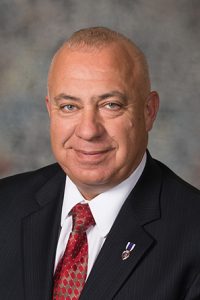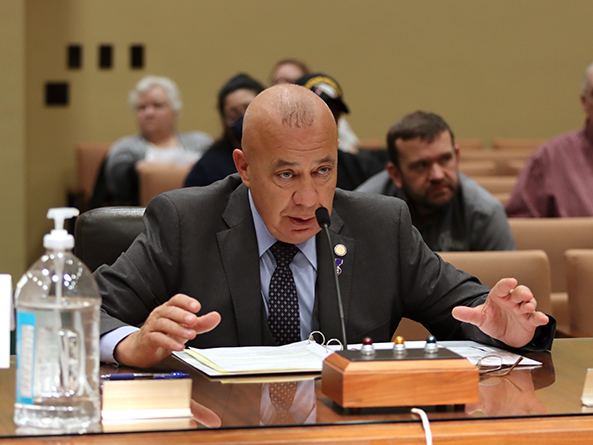Tribal water system improvements discussed
The state would allocate federal pandemic relief funds to improve municipal water systems owned and operated by Native American tribes headquartered in Nebraska under a bill considered March 3 by the Appropriations Committee.

Gordon Sen. Tom Brewer said he introduced LB1191 at the request of the Winnebago Tribe to help them address the poor quality of their drinking water. The situation is the same for other tribes in the state, he said, and the bill would provide $10 million of the state’s federal American Rescue Plan Act funds to several projects to improve and repair dangerous and substandard municipal water systems.
The bill would allocate the funds to the Commission on Indian Affairs, Brewer said, with a tentative breakdown of $6 million to the Santee Sioux Tribe and $2 million each to the Winnebago and Omaha tribes. He said all the projects are federally approved, would receive other federal matching dollars and would be suitable uses of ARPA funds.
“We’ve got a chance to right an obvious wrong,” Brewer said. “We’re looking at building huge ditches on the Colorado border … and a lot of things that are just a good idea maybe, but they’re not essential to day-to-day life. This is.”
Clinton Powell, civil engineer for the Santee Sioux tribe, testified in favor of the proposal. He said $6 million would be used to leverage a federally authorized $22 million project to bring treated surface water from South Dakota to tribal land and other communities in north central Nebraska. The project would involve a system of pipes underneath the Missouri River, he said.
Powell said the tribe currently is under an Environmental Protection Agency order not to drink the municipal water due to high levels of manganese, which is particularly harmful to infants.
Kameron Runnels, vice chairperson of the Santee Sioux Nation Tribal Council, also testified in support. The water crisis has been a burden on the tribe, he said. The local grocery store can’t stock enough bottled water to meet residents’ needs, Runnels said, and the closest supermarket with a sufficient supply is an hour’s drive away.
“As far as I can remember … clean drinking water straight from the kitchen sink is something that our tribal people have never had,” Runnels said. “We always hear the phrase ‘water is life’ among our people, yet we can’t even fill up a glass of water from our kitchen sink to give to our kids.”
Speaking on behalf of several Omaha tribal entities, Gwen Porter testified in favor of LB1191. Orders to boil water, leaks and other problems have become the norm for the tribe’s water system, she said, and the $2 million they would receive under the proposal would be used for a water treatment plant and an additional groundwater well to serve the town of Macy and surrounding areas.
Victoria Kitcheyan, chairperson of the Winnebago Tribe of Nebraska, also spoke in support. Winnebago’s water has been classified as “undesirable for household consumption,” Kitcheyan said, creating an unacceptable burden on an already impoverished community. The tribe has been working to fix the problem, she said, and pandemic relief funds would be a step toward solving a decades-long problem.
“When a bath smells like rotten eggs and is discolored, that is not the tub that you want to put your loved one in — your elderly mother, your infant child,” Kitcheyan said.
No one testified in opposition to the bill and the committee took no immediate action on it.


